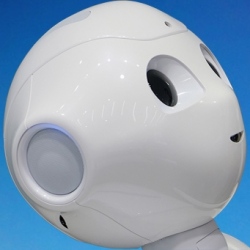
In a country with universal basic income, each individual gets a regular check from the government. Switzerland considered instituting a universal basic income of 2,500 Swiss francs ($2578) a month this summer. Voters ultimately rejected the plan, but it sparked a broad, global conversation.
Also this summer, President Obama addressed the idea of a universal basic income in an interview with the Director of MIT’s Media Lab, Joi Ito, and Scott Dadich, editor in chief of WIRED: "Whether a universal income is the right model, is it gonna be accepted by a broad base of people?, that’s a debate that we’ll be having over the next 10 or 20 years."
While society is slowly mulling over the idea of a basic human income, technology is rapidly changing the global workforce.
For example, in the future, semi-trailer trucks will be able to drive themselves. And though that won’t become the status quo for a while, it will mean that there won’t be a need for quite as many truck drivers, says Musk.
Some drivers will transition to fleet operators, responsible for monitoring the status of a fleet of trucks, not any one individual truck. If a truck appears to be having issues, then the fleet operator would come in remotely and solve the problem.
"Actually, it’s probably a more interesting job than just driving one [truck]," says Musk. It’s likely those truck drivers who no longer have a job might see the situation differently. But the optimistic Musk sees increased automation as an overall benefit to society, even an opportunity.
"People will have time to do other things, more complex things, more interesting things," says Musk. "Certainly more leisure time."
